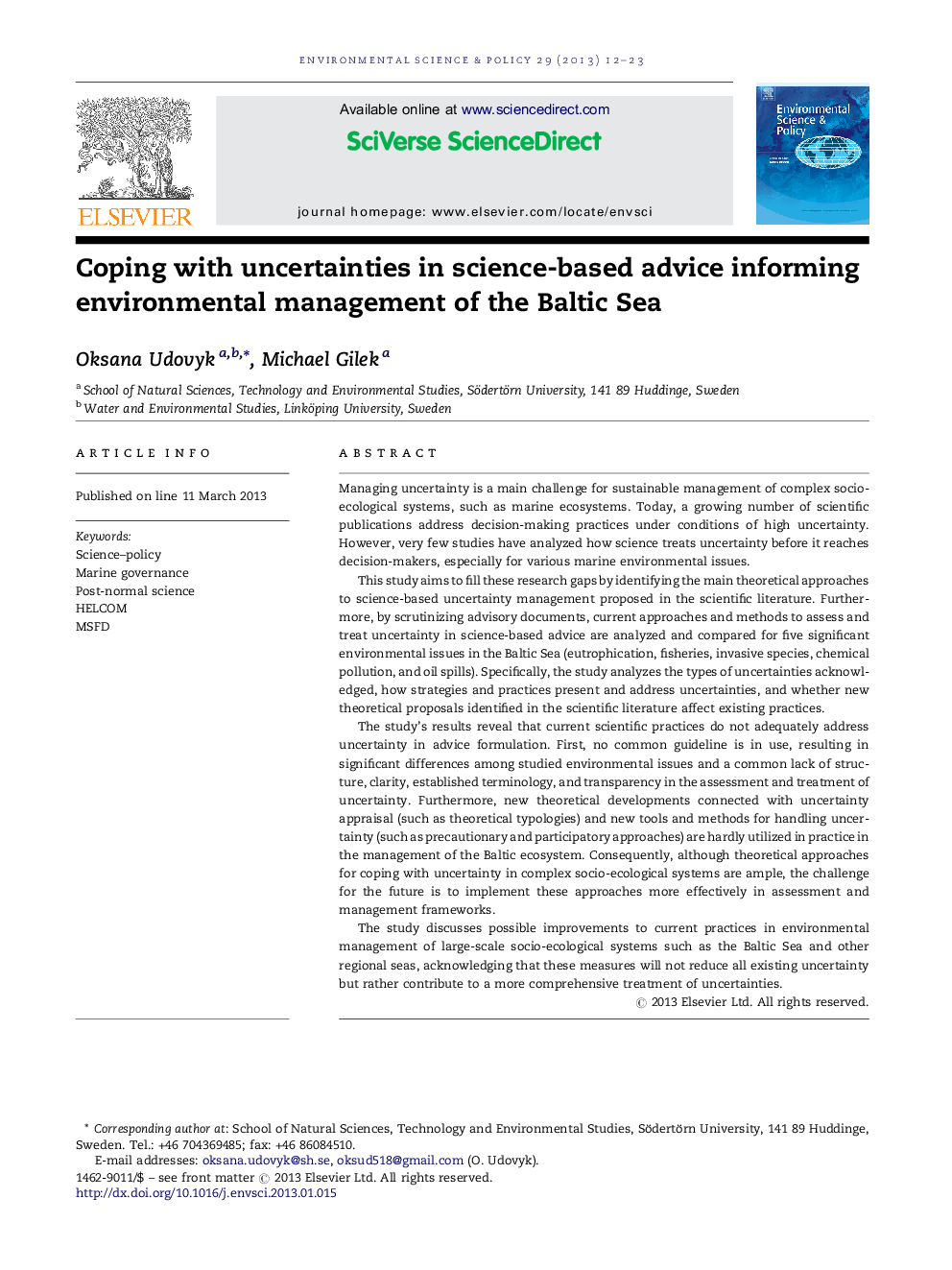| Article ID | Journal | Published Year | Pages | File Type |
|---|---|---|---|---|
| 1053621 | Environmental Science & Policy | 2013 | 12 Pages |
Managing uncertainty is a main challenge for sustainable management of complex socio-ecological systems, such as marine ecosystems. Today, a growing number of scientific publications address decision-making practices under conditions of high uncertainty. However, very few studies have analyzed how science treats uncertainty before it reaches decision-makers, especially for various marine environmental issues.This study aims to fill these research gaps by identifying the main theoretical approaches to science-based uncertainty management proposed in the scientific literature. Furthermore, by scrutinizing advisory documents, current approaches and methods to assess and treat uncertainty in science-based advice are analyzed and compared for five significant environmental issues in the Baltic Sea (eutrophication, fisheries, invasive species, chemical pollution, and oil spills). Specifically, the study analyzes the types of uncertainties acknowledged, how strategies and practices present and address uncertainties, and whether new theoretical proposals identified in the scientific literature affect existing practices.The study's results reveal that current scientific practices do not adequately address uncertainty in advice formulation. First, no common guideline is in use, resulting in significant differences among studied environmental issues and a common lack of structure, clarity, established terminology, and transparency in the assessment and treatment of uncertainty. Furthermore, new theoretical developments connected with uncertainty appraisal (such as theoretical typologies) and new tools and methods for handling uncertainty (such as precautionary and participatory approaches) are hardly utilized in practice in the management of the Baltic ecosystem. Consequently, although theoretical approaches for coping with uncertainty in complex socio-ecological systems are ample, the challenge for the future is to implement these approaches more effectively in assessment and management frameworks.The study discusses possible improvements to current practices in environmental management of large-scale socio-ecological systems such as the Baltic Sea and other regional seas, acknowledging that these measures will not reduce all existing uncertainty but rather contribute to a more comprehensive treatment of uncertainties.
► The study analyzes contemporary theoretical discussions of science-based uncertainty treatment. ► It identifies types of uncertainties and how they are presented and treated in selected environmental cases. ► The study analyzes how identified uncertainties, methods, and strategies relate to current general theoretical discussions. ► It also develops suggestions for possible improvements to current practices.
